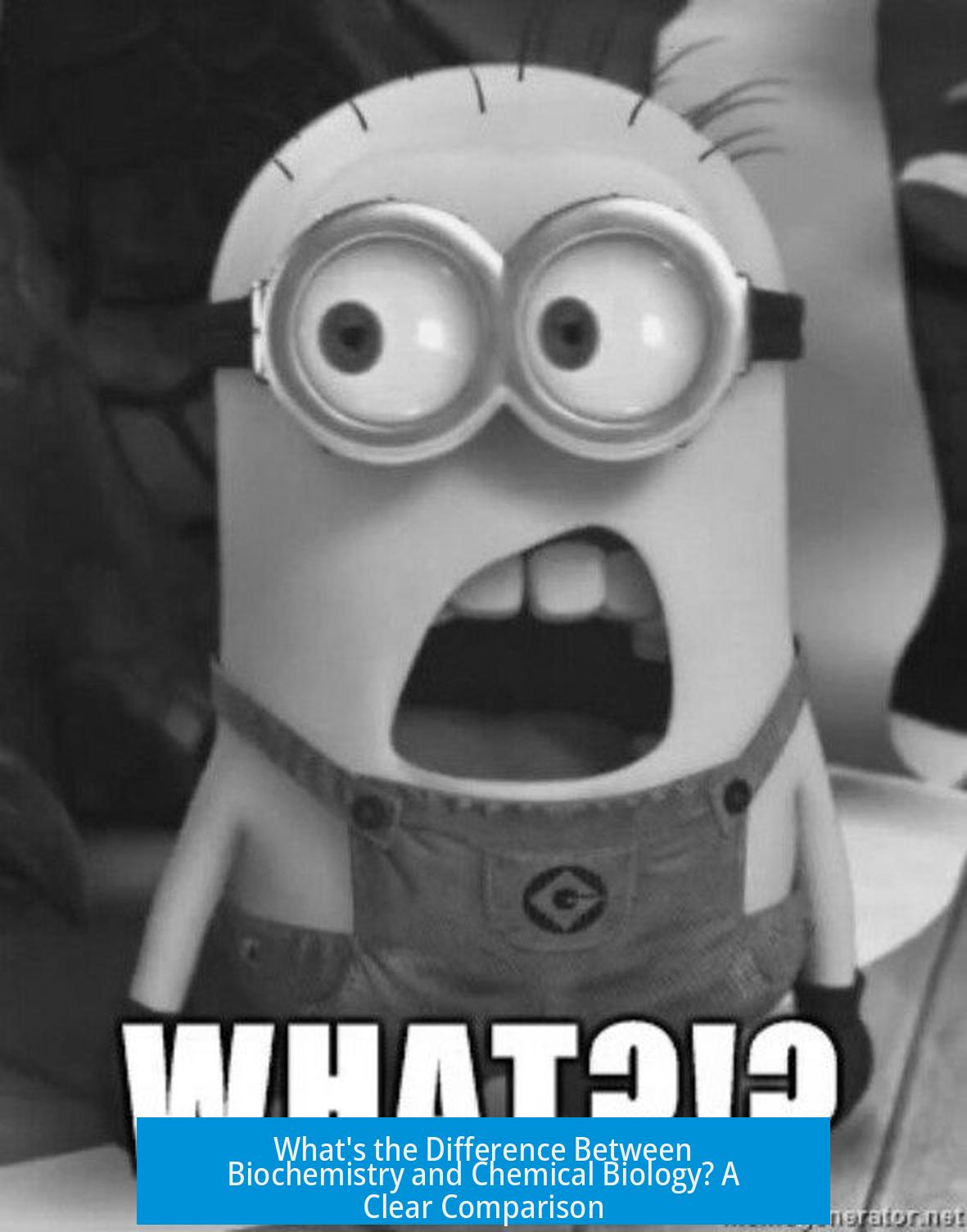Understanding the Difference Between Biochemistry and Chemical Biology
Biochemistry and chemical biology are closely related fields, but they differ primarily in their focus and approach to studying biological systems through chemistry.
Overlap and Terminology
Both biochemistry and chemical biology share significant overlaps. Sometimes, bio-organic chemistry is also mentioned alongside these fields, but distinctions remain useful for clarity.
Focus of Biochemistry
Biochemistry primarily studies the chemistry occurring within living systems. It explores how biomolecules such as enzymes, nucleic acids, lipids, and carbohydrates are synthesized and how they function.
- Examines enzymatic activities and biosynthetic pathways.
- Focuses on biomolecule structures, functions, and interactions.
- Considers chemistry as the natural output of biological processes.
Focus of Chemical Biology
Chemical biology uses chemical tools and techniques to investigate and manipulate biological systems.
- Development and application of molecular probes like inhibitors or fluorescent labels.
- Studies how to create or modify molecules within biological contexts, often by leveraging cellular machinery.
- Views chemistry as an input to influence or understand biology.
Conceptual Distinction
One way to think about the difference is that biochemistry addresses chemistry produced by biology, whereas chemical biology uses chemistry as an experimental tool to probe biology.
Varied Perspectives
Some experts view chemical biology as a modern rebranding of traditional biochemistry, while others emphasize the methodological differences. Both fields benefit from molecular biology advances, which continue evolving and intertwining with these disciplines.
Summary Table
| Aspect | Biochemistry | Chemical Biology |
|---|---|---|
| Main Focus | Chemistry within living systems | Chemical tools to study biology |
| Approach | Characterizing biomolecules and pathways | Designing probes and synthetic molecules |
| Chemistry Role | Output of biological processes | Input for biological investigation |
| Examples | Enzymology, metabolism, structural studies | Probe development, inhibitor design, biosynthesis manipulation |
Key Takeaways
- Biochemistry studies natural chemical processes in living organisms.
- Chemical biology applies chemistry to manipulate or explore biological functions.
- The distinction is conceptual; practical work often overlaps.
- Both fields contribute vital knowledge to molecular and cellular biology.
What is the main focus of biochemistry compared to chemical biology?
Biochemistry studies the chemistry that naturally occurs in living systems. It looks at how biomolecules are made and their properties. Chemical biology uses chemistry as a tool to explore biology, often by creating molecules that interact with biological systems.
How does chemical biology use chemistry differently than biochemistry?
In chemical biology, chemistry acts as an input, designing molecules like probes or inhibitors that interact with cells. In contrast, biochemistry treats chemistry as the output, studying molecules produced by biological processes.
Why is the boundary between biochemistry and chemical biology often unclear?
Both fields overlap significantly and share many methods. Chemical biology is sometimes seen as a broad term covering any chemistry-biology mix. Biochemistry and chemical biology can study similar systems from different angles.
Does chemical biology just rebrand biochemistry?
Some view chemical biology as rebranding biochemistry, but chemical biology often emphasizes the creation and use of synthetic molecules to probe biology, going beyond traditional biochemistry’s scope.
How do probe compounds relate to chemical biology?
Chemical biology frequently uses probe compounds like inhibitors or fluorescent labels to study biological mechanisms. These tools help reveal biological functions by interacting specifically with biomolecules.
Can you summarize the practical difference between the two fields?
Biochemistry focuses on understanding natural biomolecules and processes. Chemical biology focuses on making and applying chemical tools to study or manipulate biology. Both fields inform each other but have distinct research goals.





Leave a Comment